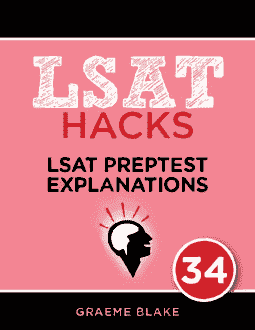QUESTION TEXT: A group of 1,000 students was randomly selected from three high…
QUESTION TYPE: Flawed Reasoning
CONCLUSION: The vast majority of high school students want to graduate. The dropout rate can’t be blamed on a lack of motivation.
REASONING: A single survey of 1000 high school students from a mid-sized city found that 89% want to graduate.
ANALYSIS: This survey may not be representative. There could be big differences between those three high schools and high schools in other cities. Or between those high schools and rural high schools.
___________
- 89% of pretty clearly an overwhelming majority. Only 11% said no, at most.
- The conclusions don’t conflict: students want to graduate and the reason the drop out rate is so high is not because students don’t want to graduate.
- The argument says “if…the dropout rate…is high.” It’s open to the possibility that it isn’t high.
- Nope. The argument is claiming that some other reason explains the alleged dropout rate. Maybe they need to get a job to help pay the bills.
- CORRECT. There can be massive differences between cities. The survey should have looked at students nationwide.


Sometimes a question may have multiple flaws and the answer choices will only include one of those flaws.
The big flaw I saw in this question was that it takes for granted the students answering they “plan” to finish high school is the same as the students “want” to finish high school. Perhaps even if they plan to finish high school, the students may still not want to. Maybe the majority of students’ desires are to drop out and become rock stars, but their parents are forcing them to get their education.
But I didn’t see that answer in the answer choices, but I did see the answer choice E about the small sample size and went with that answer.
Was my assessment of that flaw incorrect? Would plan = want in this context? Sometimes I realize with LR questions, the usage of particular words matter and sometimes they do not (ie, you can make an assumption that one word is the logical equivalent of another). It’s a bit difficult for me to assess if I may be on to something when this happens or when I may be overthinking.